
Compound Light Microscope Magnification Calculation Shelly Lighting
Step 1: Determine the Objective Lens Magnification Examine your microscope's objective lens and find its magnification level. Some microscopes have switchable turrets with different objectives such as 4x, 10x, 40x, and 100x. Step 2: Determine the Eyepiece Lens Magnification

Compound Light Microscope Magnification Calculation Shelly Lighting
To calculate total magnification, find the magnification of both the eyepiece and the objective lenses. The common ocular magnifies ten times, marked as 10x. Standard microscope objective lenses magnify 4x, 10x and 40x. If the microscope has a fourth objective lens, the magnification will most likely be 100x.

How to Calculate Magnification on a Light Microscope Sciencing
This Calctown Calculator calculates the magnification of compound microscope. Result (linear magnification of objective) Me (angular magnification of eyepeice) Click here to view image where L = tube length f 0 = objective focal length f e = eyepeice focal length m 0 = linear magnification of objective M e = angular magnification of eyepeice
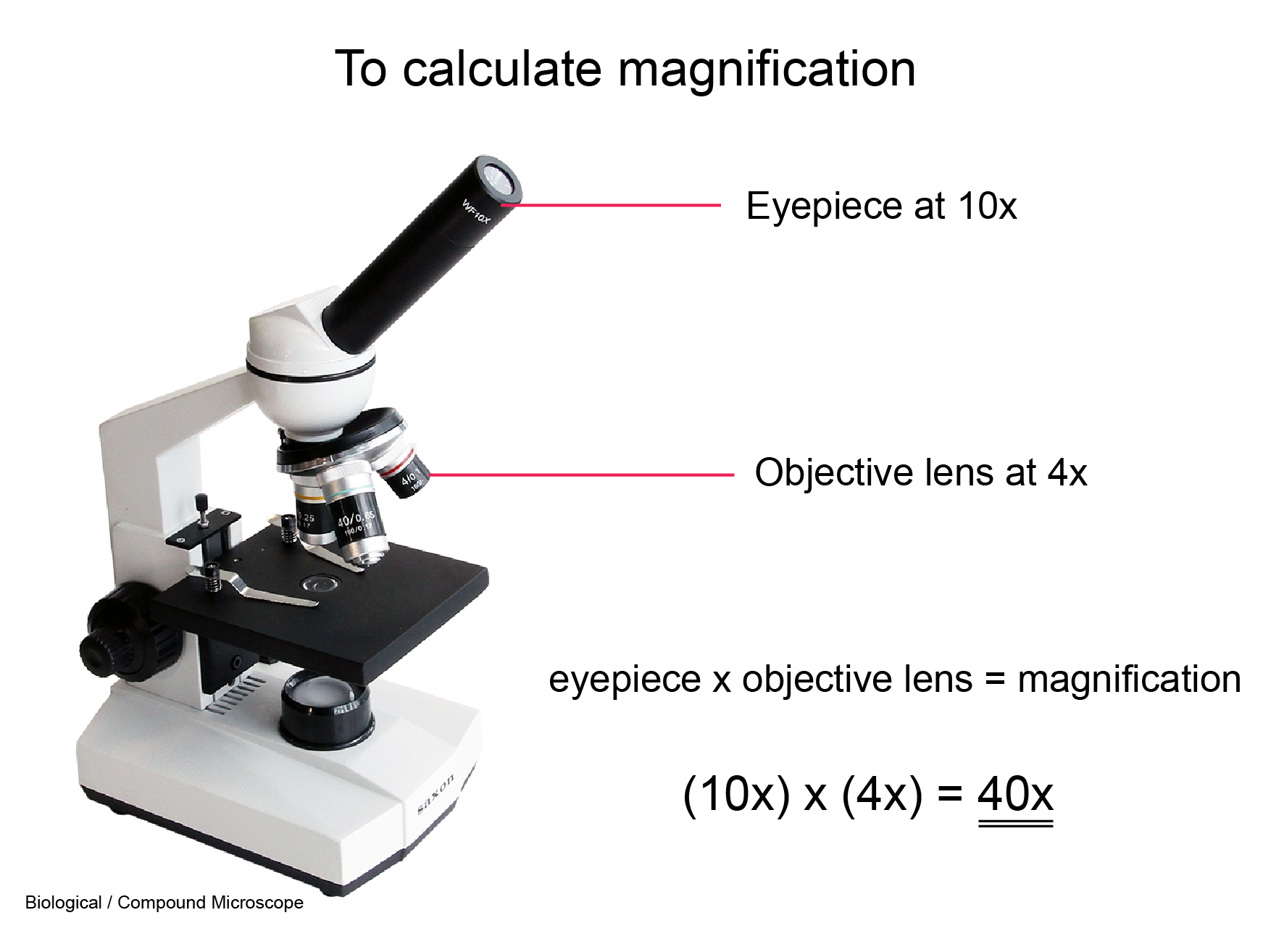
Telescope Applications
Figure 1: (a) Most light microscopes used in a college biology labs can magnify cells up to approximately 1000 times (1000X) and have a resolution of about 200 nm ("two hundred nanometers"). (b) Electron microscopes provide a much higher magnification, 100,000X, and a have a resolution of 50 pm ("fifty picometers").
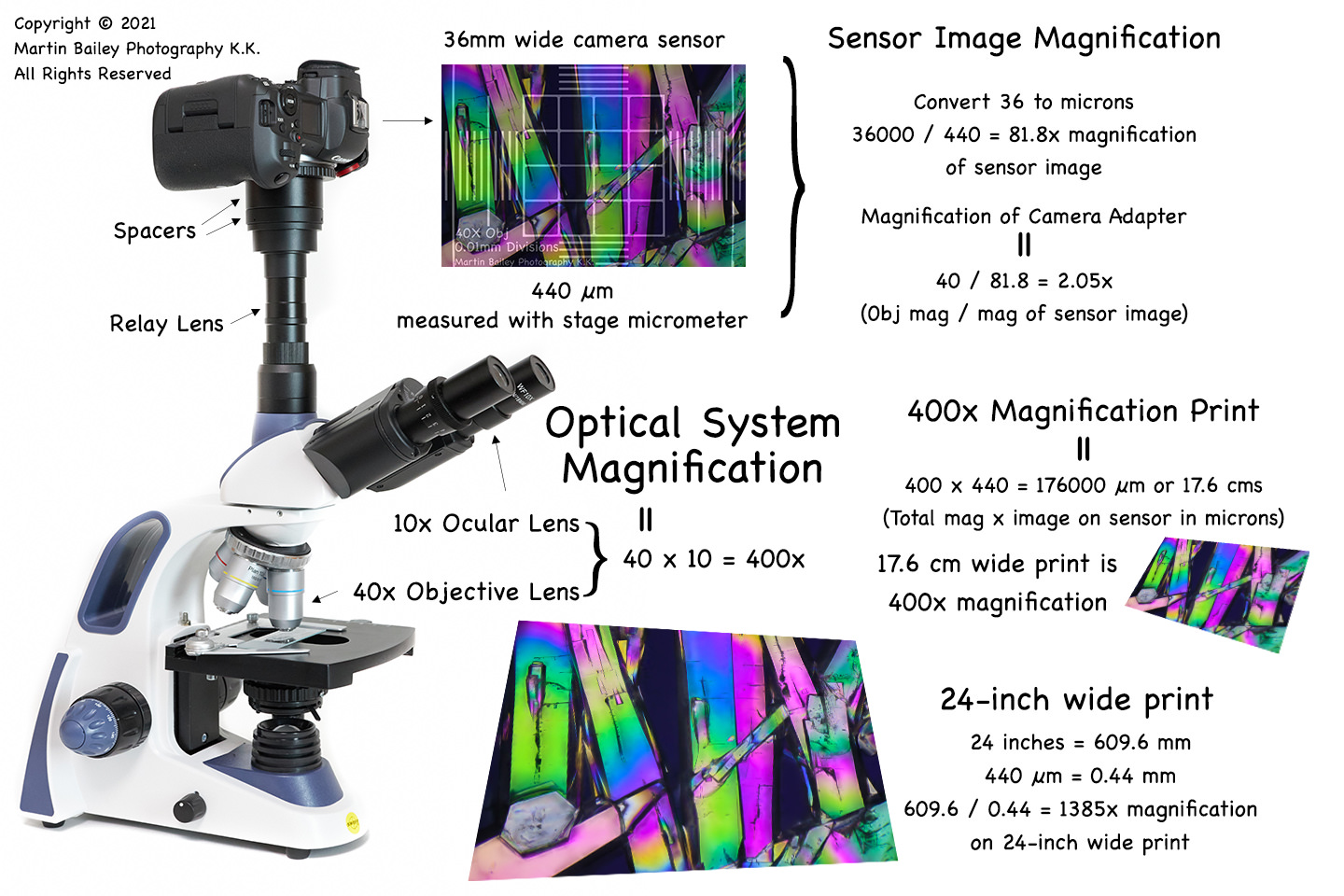
Compound Light Microscope Magnification Calculation Shelly Lighting
This calculator calculates the microscope magnification using ocular len's magnification, objective len's magnification values. Microscope Magnification Calculation Reset Formula: M m = OC m OB m Where, Mm = Microscope Magnification OCm = Ocular Len's Magnification OBm = Ocular Len's Magnification Online microscope magnification calculation.
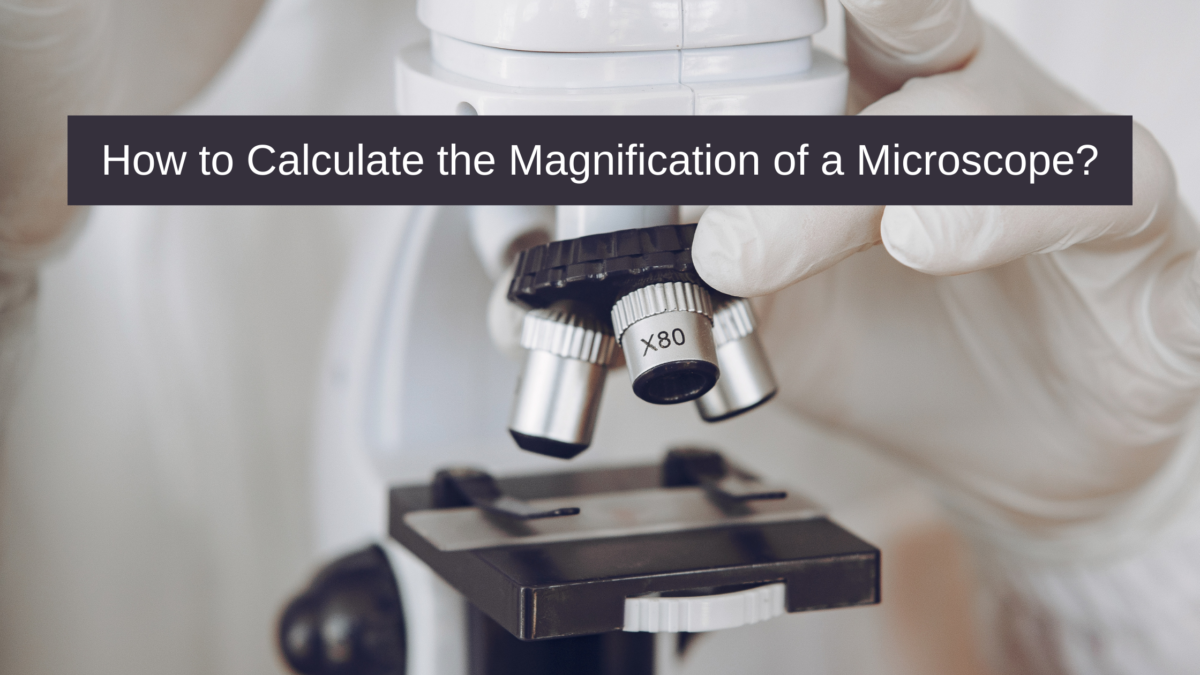
Compound Light Microscope Magnification Calculation Shelly Lighting
A microscope magnification calculator is a tool that calculates the magnification of a microscope based on the characteristics of the lenses and the eyepiece used. Magnification is the degree to which an object is enlarged when viewed through a microscope, and it is a critical parameter in microscopy for visualizing and studying microscopic.
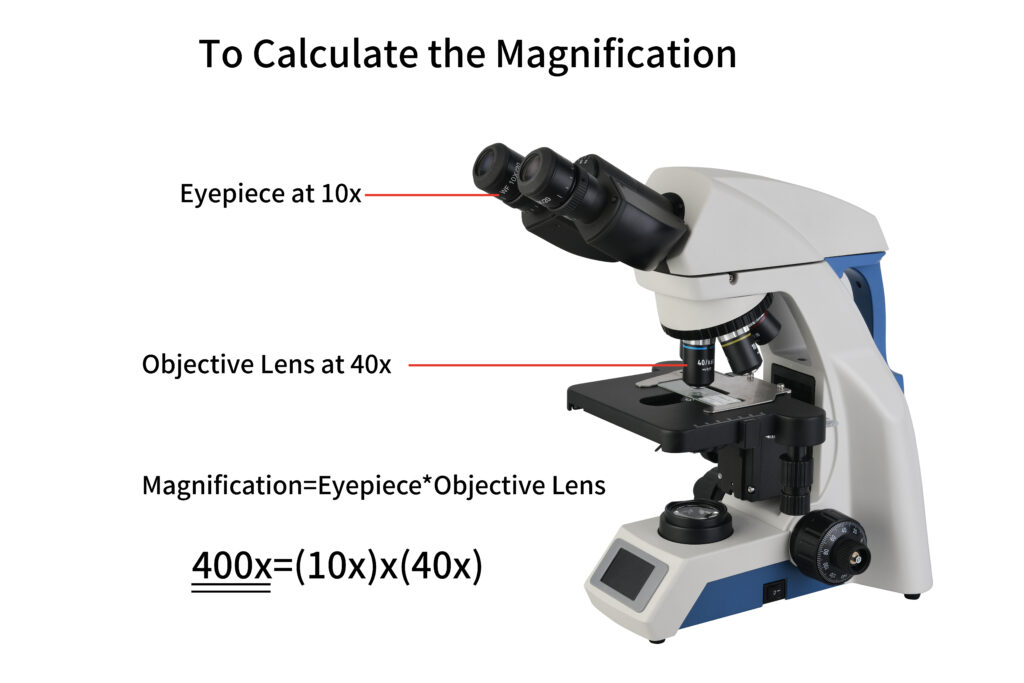
How to Calculate the Magnification of a Microscope?
The calculator determines the magnification of an optical microscope with a digital camera when a specimen image is displayed on a monitor. Example: Calculate the magnification of a digital microscope with a 45× objective lens, 10× ocular, 0.35× camera adapter lens with a 2-megapixel 1/2.5" (5.76 × 4.29 mm) sensor with resolution 1600 ×.

Calculating Size of Specimen & Magnification YouTube
The magnification of a microscope can be calculated using the following formula: Total Magnification = Objective Power x Eyepiece Power Enter Objective Power: x Enter Eyepiece Power: x Calculate Reset The objective lens is the lens closest to the object being viewed, and the eyepiece lens is the lens closest to the eye of the observer.
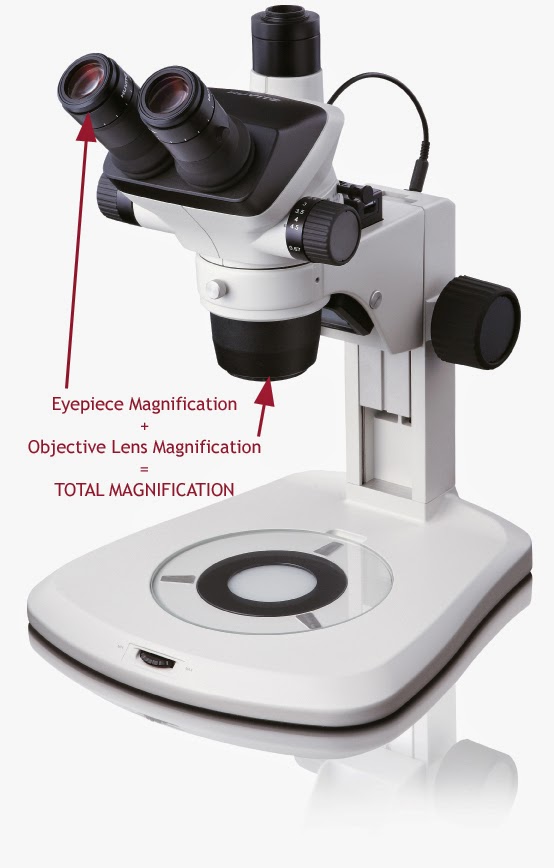
Microscope World Blog How to Calculate Stereo Microscope Magnification
Microscope Magnification and Field of View Calculator Microscope field of view diameter, DVF The calculator determines the microscope field of view from the known magnification of the objective lens and the field number of the eyepiece (ocular) lens.

Microscope resolution calculator seattletyred
Total Magnification: Lateral Resolution: Axial Resolution: Sampling Rate (Nyquist Sampling): r lat / pix Depth of Field: Depth of Focus: Brightness: Optical Pathway Simulation More Information here Magnification Numerical Aperture Brightness Depth of Field Depth of Focus Widefield Lateral (XY) Resolution Widefield Axial (Z) Resolution

How to Calculate Total Magnification on a Compound Microscope YouTube
Based on the chart above we would calculate digital magnification by using 482.6mm / 8.00 = 60.325. Now we can find the total on-screen magnification by multiplying optical magnification x digital magnification. In our example 2 x 60.325 = 120.65x on-screen magnification.

GCSE Biology Calculating Magnification and Size of Specimens
The Formula for Finding Microscope Magnification. To find the magnification that has affected your microscope image, you'll need to multiply the magnification power of your eyepiece (ocular lens) by the power of your objective lens. For example, if the ocular lens shows a 10X magnification and the objective shows a 20X magnification, the.

How to calculate Magnification of Microscope using Magnification
The total magnification is calculated by multiplying the magnification of the eyepiece by the magnification of the objective lens. For example, if the eyepiece magnification is 10x and the objective lens magnification is 40x, the total magnification would be 400x. Importance of Magnification in Microscopy
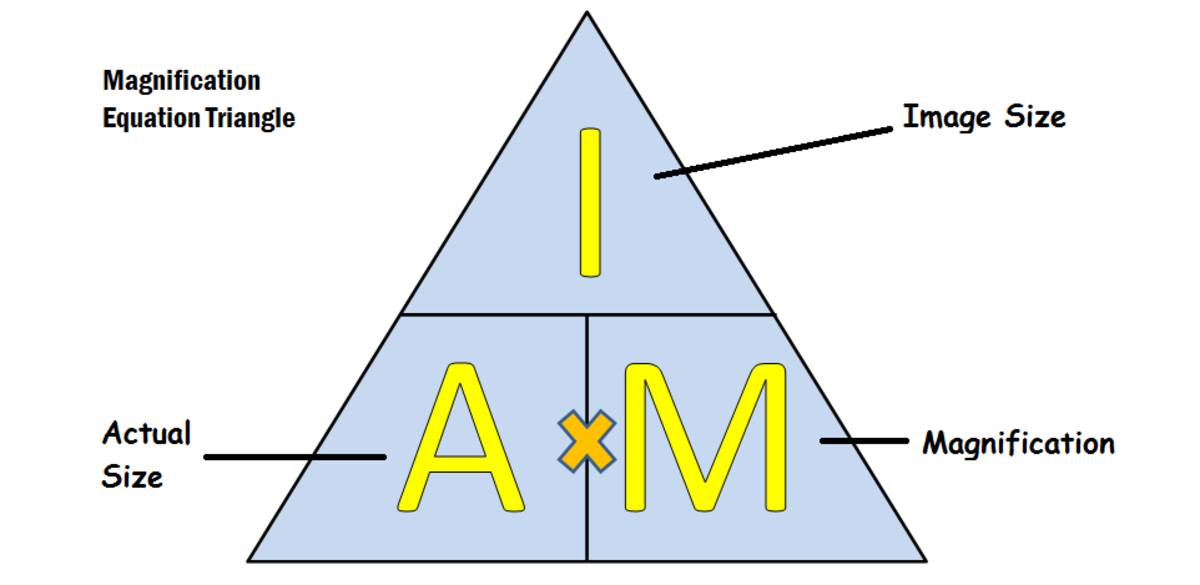
Types of Microscopy Owlcation
Microscope Magnification Calculator is a tool used to calculate the magnification of a microscope based on the objective and eyepiece lenses. This calculator is significant in scientific research, medical labs, and educational institutions, where precise magnification is required to study small organisms, cells, and other microscopic structures.

How to Calculate Magnification on a Light Microscope Sciencing
To calculate the total magnification of the compound light microscope multiply the magnification power of the ocular lens by the power of the objective lens. For instance, a 10x ocular and a 40x objective would have a 400x total magnification. The highest total magnification for a compound light microscope is 1000x. Things You'll Need

using microscopes worksheet
M agnification = length of the I mage divided by the A ctual Length. Scale bar Magnification can be calculated using a scale bar. This is a line drawn near the photograph or drawing which has a.